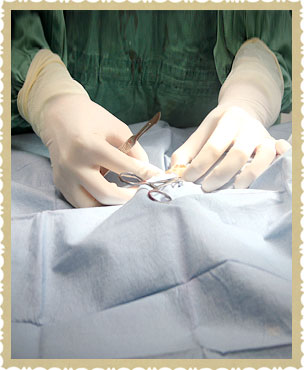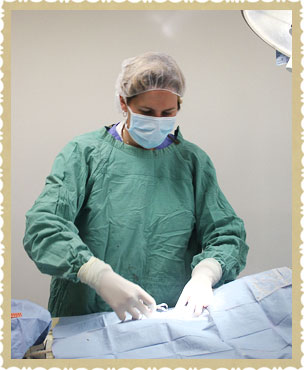Compassionate Surgical Options

Dr. Anderson and the entire staff at Anderson Animal Hospital understand that the decision to allow your beloved companion to undergo surgery is never an easy one. We strive to ensure your pet's procedure is as comfortable and stress-free as possible. We regularly provide in-house training to our medical staff and require regular procedural reviews for our veterinary assistants.
Perhaps the most important pre-surgical step is to discuss why we believe a particular procedure is necessary and what it entails. Dr. Anderson will provide you with information on proper postoperative care and answer any questions you may have so that you feel comfortable knowing you are making the right choice for your pet.
We regularly perform many types of surgeries, including but not limited to:
- Spays and neuters
- Equine castration
- C-sections
- Eye surgery
- Bladder surgery
- Tumor removal
- Gastrointestinal surgeries
- Orthopedic surgeries
- Cancer surgeries
- Skin surgery
Anesthesia
Ensuring the health and safety of your pet during surgery is our utmost concern and requires an anesthetic and monitoring regimen that adheres to the highest principles and ideals of quality care.
At Anderson Animal Hospital, we provide your pet with personal state-of-the-art anesthetic administration and cardiovascular technology that is monitored by our skilled veterinary assistants. Our staff completes monitoring reports for each anesthesia procedure.
Prior to surgery, your pet is examined and a pre-surgical blood screen is highly recommended. The results of these tests and past anesthetic history, breed, preexisting conditions, and age are used to create an individualized anesthesia protocol for your pet.
While under anesthesia, your pet is cared for by an experienced veterinary assistant using our monitoring system, which tracks blood pressure, heart rate, respiratory rate, body temperature, and oxygen level.

Pain Management
We all know that pain hurts, but pain also has many other detrimental effects on your pet's body. Pain slows healing, decreases activity, and causes behavioral changes such as aggression, anxiety, and depression. Pain worsens diseases like arthritis and potentially some cancers. It interferes with the bond between you and your pet.
At Anderson Animal Hospital, we practice the most up-to-date pain management protocol and prefer to "stay ahead of the pain." For acute and chronic conditions, we use all our available and safe resources, including NSAIDs (non-steroidal medications) and oral and injectable analgesics for the complete comfort of your pet.
Post-Operative Care
Our facility's treatment area has a special recovery ward with glass doors where your pet can rest until fully alert and ambulatory. The performed procedure and recovery time will determine when your special friend should be discharged.